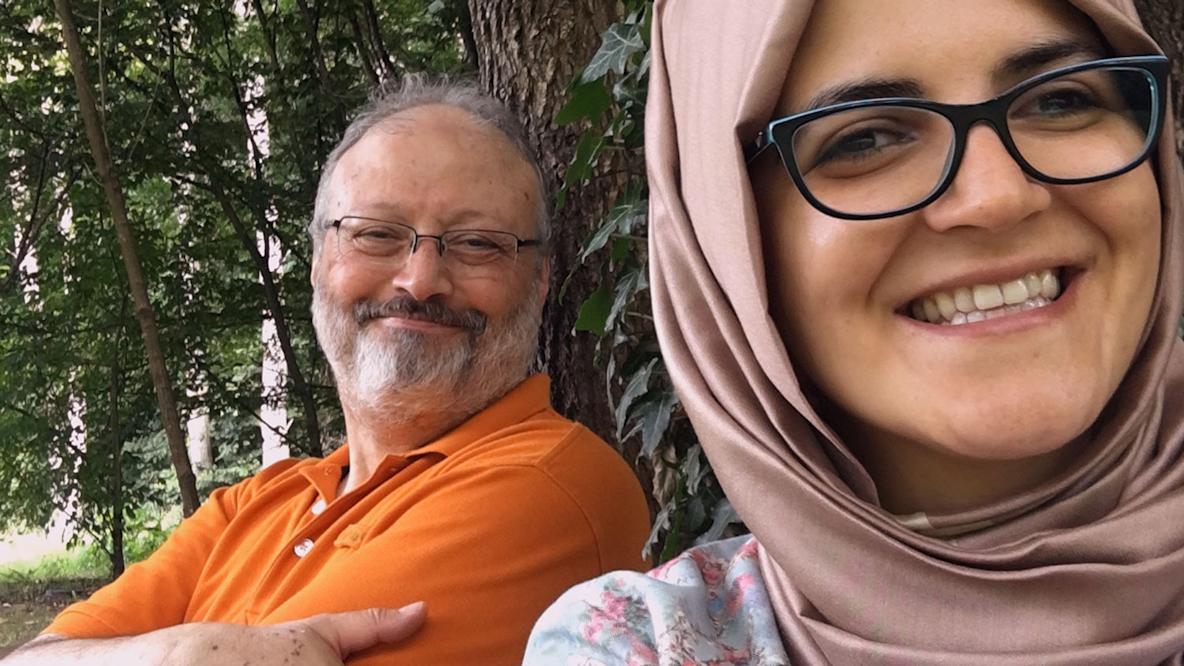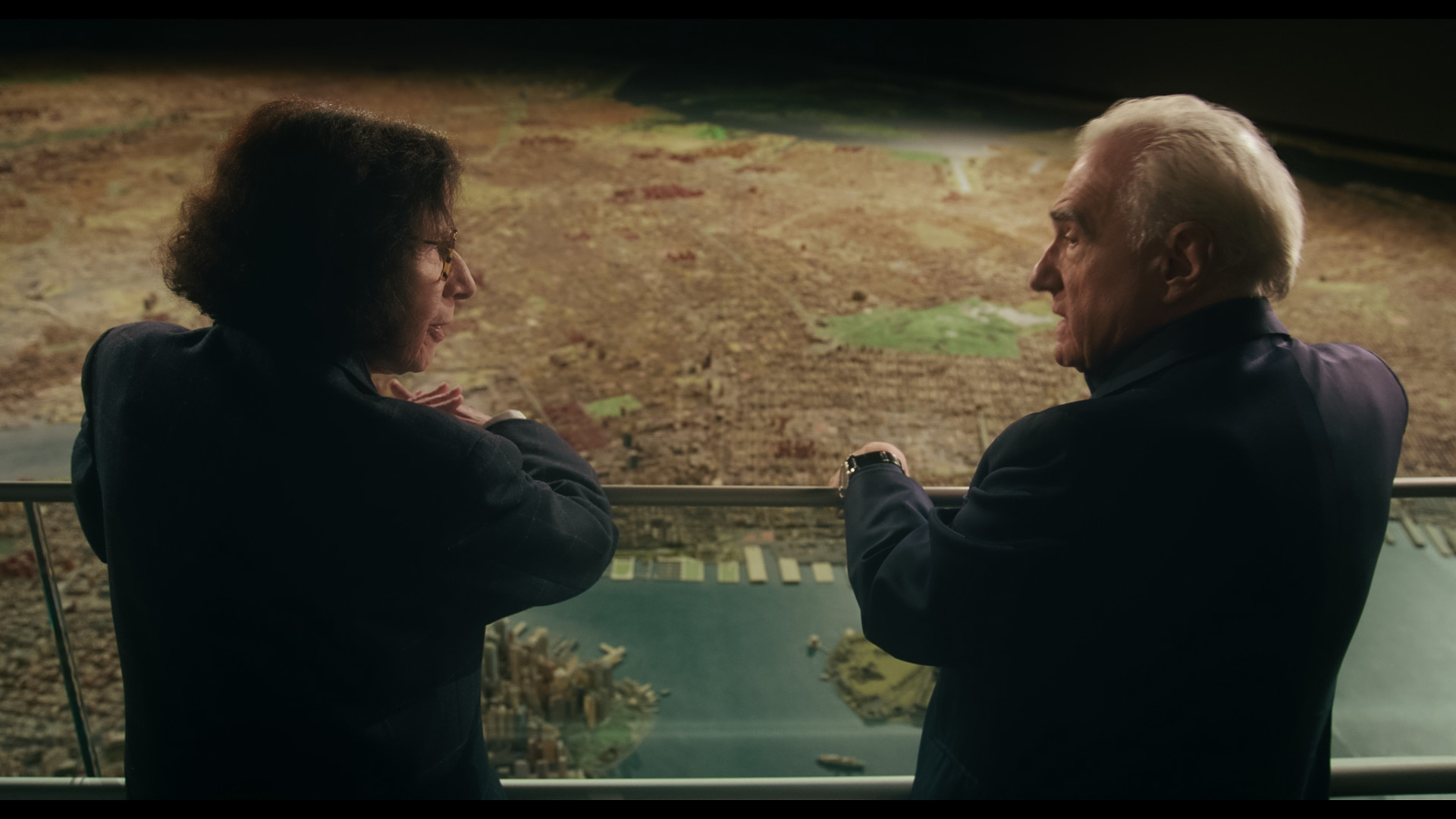The Dissident
(USA, 119 min.)
Dir. Bryan Fogel
The murder of Saudi-born journalist Jamal Khashoggi in October 2018 sent shockwaves across the globe. A Washington Post columnist at the time, Khashoggi walked into the Saudi Arabian consulate in Istanbul, Turkey, to obtain documents needed to wed his fiancée, Hatice Cengiz. He never walked out. It was later revealed that Khashoggi was tortured and dismembered as part of a plot allegedly approved by high-ranking Saudi officials including the Crown Prince Mohammed bin Salman (MBS). Piecing together the events that led to that fateful day, director Bryan Fogel’s The Dissident aims to give Khashoggi’s death the justice it was denied.
Frequently jumping between the investigated facts around the killing, insight into Khashoggi as a man, and the politically complex history of the Saudi Arabian government, The Dissident bursts at the seams with information. As if accidentally stepping into the deep end of an unmarked pool, the sheer amount of ground Fogel’s film covers may overwhelm viewers who are unfamiliar with the story. To his credit, Fogel, an Oscar winner for the investigative doc Icarus, structures The Dissident so that it moves swiftly despite the weight it carries. The documentary is meticulous in the way it presents its case against those allegedly responsible for the murder.
The Dissident allows the evidence, including transcripts of the recordings within the consulate and testimony from investigators, to speak for itself. As the film notes early on, Khashoggi’s death was meant to send a message. One of his assailants even mockingly asked prior to the killing, “Had the sacrificial victim arrived?” What makes the gruesome murder extra chilling is that it occurred in the last place anyone would have expected. As Hatice herself notes in the film, “It never crossed my mind they could kill someone in a consulate.”
While a wave of love ushered the couple to the consulate, Fogel shows that the waters in which Khashoggi waded were getting increasingly dangerous. Playing like a dense procedural thriller, the tension begins to build immediately by introducing audiences to Omar Abdulaziz, a Saudi-born activist and dissident living in exile in Montreal. Talking frantically on the phone about a video that needs to be viewed and immediately deleted, Abdulaziz’s proclamation that “it’s all about revenge” in the opening moments feel straight out of a spy movie. This sentiment develops when the activist shares stories about receiving anonymous threats and being hacked by the same elaborate spyware that infiltrated Amazon founder Jeff Bezos’ cellphone. (Bezos’ phone was hacked after opening a Whatsapp message that apparently came from MBS’s personal account.)
The Dissident doesn’t clarify whether such invasive tools ultimately played a role in Khashoggi’s death sentence. It is merely one of several possibly culminating events, including a cyberwar over freedom of speech, which played out over Twitter. What is certain, however, is that Khashoggi became more emboldened to speak against injustice after being inspired by the average citizens who led the Arab Spring revolution. Prior to that, Khashoggi had led a rather comfortable life within the system. Always careful not to fully bite the hand that fed him, his criticism of the government tested the acceptable bandwidth without applying too much pressure.
Occasionally The Dissident struggles with juggling its desire to present Khashoggi as a martyr with the reality that he spent years benefitting from the same system he grew to condemn. Fogel’s documentary glosses over the complexities of both Khashoggi’s relationships with Saudi officials and, in his later years, the dissidents who opposed them. While Khashoggi and Abdulaziz became good friends, other activists questioned Khashoggi’s loyalties due to his relationship with the Saudi regime. At the same time, the Saudi government also began to distrust Khashoggi. The idea of Khashoggi being caught in the isolating middle is further expanded upon when Hatice reflects on their courtship.
Presenting him as a man who deeply loved his country but was wary of the political direction in which it was going, Hatice paints an intimate portrait of the Khashoggi she knew and loved. Reflecting on an image of him in a La-Z-Boy recliner, the only piece of furniture in the home they were to live in after their wedding day, she eloquently explains that Khashoggi was a brilliant but lonely soul. She describes a man who fled to the United States, leaving his previous wife and kids behind to fight for a cause he believed in and lost his homeland, and everything he held dear, in the process.
While The Dissident saves its knockout punch for how the Saudis attempted to cover up the murder, it has several stinging jabs for the Trump administration. Despite the pressure from the international press for action, and members of his own party in agreement of who committed the crime, President Trump himself openly sided with MBS’s denial of his country’s involvement. As the film emphasizes, Trump’s decision to do nothing is yet another entry in the growing list of global examples where securing monetary deals superseded human rights and justice.
The Dissident may not quite serve as the scolding hand of justice it strives for, especially for those familiar with the story, but it makes a solid case for the ramifications on free speech if heinous crimes like this go unpunished. In unravelling the complicated political ball of yarn that surrounded Khashoggi’s death, Fogel ensures one walks away aware of who was truly pulling the deadly strings.
The Dissident will be released on VOD and Digital on January 8th.












